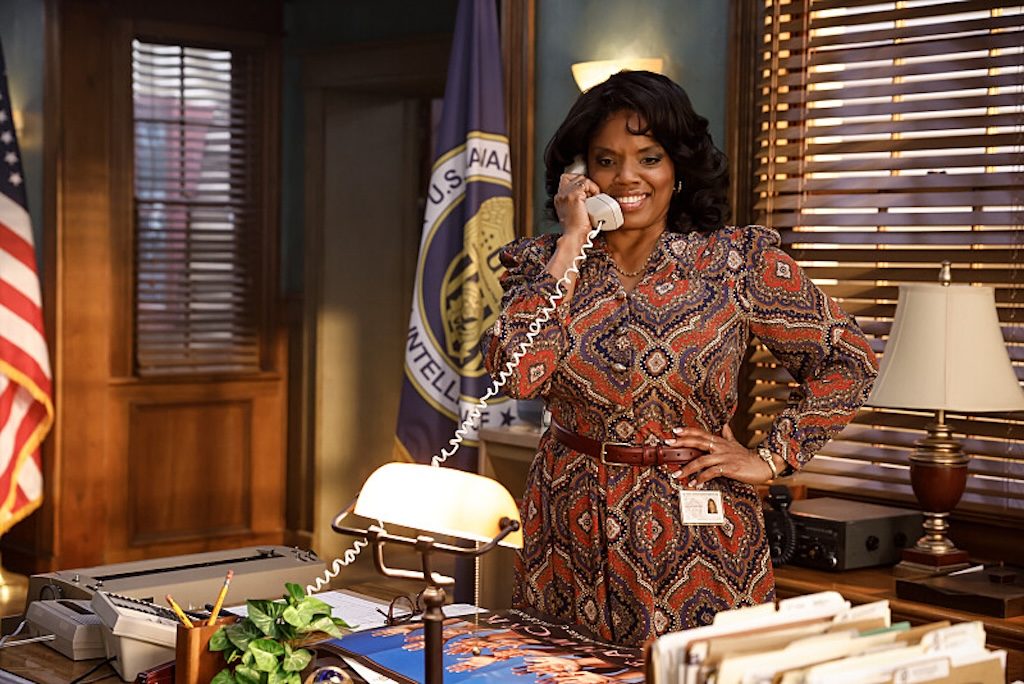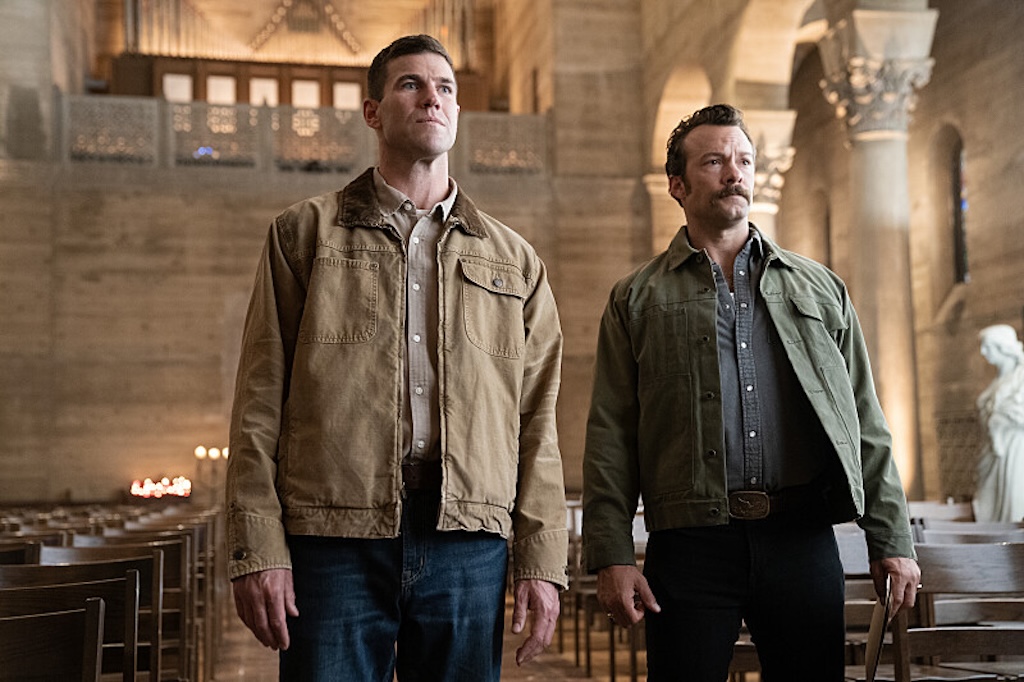This article contains mild spoilers.
NCIS (Naval Criminal Investigative Service) is a solid procedural crime drama that has entertained audiences since 2003. It has enjoyed numerous spinoffs in multiple global locations including Los Angeles, Hawaii and Sydney.
Recently, NCIS: Origins, set in 1991, follows the formative relationship between Special Agent Leroy Jethro Gibbs (Austin Stowell) and Special Agent Mike Franks (Kyle Schmidt) to help audiences understand how things came to be. Their story is told through a series of flashbacks blended with current events.
David J. North who co-created NCIS: Origins with Gina Lucita Monreal spoke with Creative Screenwriting Magazine about crafting an origin story in the overall context of the NCIS universe. He worked on the first NCIS series and also on NCIS: Los Angeles and has a unique perspective on the evolution and trajectory of the show.
What Makes NCIS Stand Out?
The showrunner describes the DNA of a typical NCIS episode as being “very much a procedural, but it’s really about the characters. It’s about what’s happening in between the cracks. There’s a light heartedness to it. It’s about the banter.” This contrasts with other procedurals like Law & Order which are sterner and equally divided between character development and a case of the week.

David North. Photo by Sonja Flemming/ CBS Broadcasting, Inc.
Both Monreal and North believe that the most memorable episodes of NCIS are the ones that dive deeper into one or more of their characters. They wrote such character studies in perhaps three or four of their favorite episodes in the eighteen episode season of Origins.
An origin story must stand on its own feet yet still feel part of the entire NCIS universe. They’ve had the pleasure of working with many writers over the twenty-odd year canon of the show who often keep them on track regarding storylines and relationships.
“The biggest and most challenging thing for Gina and I was to create a show, that if you’d never seen an episode of NCIS, you could go for this ride and you would love it,” states North. If you’re a long-time fan of the show, “you’re going to learn a whole lot more about Leroy Gibbs, Mike Franks and other characters. You experience them in a different way versus meeting them for the first time, so you don’t feel like you’ve missed anything.”
Leroy and Mike
Leroy and Mike begin their relationship at Camp Pendleton as mentee and mentor respectively in NCIS: Origins. Their relationship is tested, but returns to a place of male friendship and mutual respect.
“Gibbs has a unique relationship with his own father. As much as his dad, Jackson (Robert Taylor) loves him, there’s a fracture we can see in Season One of Origins. We certainly saw parts of it in the history of NCIS.” Mike Franks partially fills that role and Leroy Gibbs obliges, especially in Episode 10, Blue Bayou.
We also find out why Gibbs wanted to become an NIS agent in the first place during the season.
“Mike Franks is a complicated guy who doesn’t always do right by Gibbs. He thinks he does, but he doesn’t.” North refers to the episode when Franks gives Gibbs the file so he can find the man that killed his family. That may have been a misguided attempt for Gibbs to find retribution and peace, but that may not be what Gibbs really needs.
Gibbs and Franks propel the season as dual protagonists. Both equally drive the story and grow as characters.
Gibbs is dealing with the loss from losing his wife Shannon and daughter Kelly as well as being kicked out of the marines, all within four months. He realized, “The uniform didn’t fit the same.” He had to start over. Much of this was referenced in the NCIS canon. There was more room to build Franks’ character since not much was previously known about him.
“We’re learning in Origins that Franks went off to Vietnam and has a fractured relationship with his older brother, Mason, who was essentially his father figure. These kinds of things set the stage for when Gibbs and Franks come into each other’s lives and are trying to be there for each other, trying to teach and learn from each other, but at the same time, they’re both carrying their own difficulties,” explains the showrunner.
Narration & Flashbacks
NCIS: Origins has a vast story territory to cover, so the backstory needs to be covered quickly and efficiently.
One device is the narration of Mark Harmon, who played Gibbs for twenty years, and the other is the use of targeted extended flashbacks. “You don’t see flashbacks to try to explain the crime. It’s really getting in to the heart of these characters.”

Mary Jo Hayes (Tyla Abercrumbie) Photo by Sonja Flemming/ CBS Broadcasting, Inc.
So, in a current episode, you see the origin story play out in real time. We learn more about Mike Franks and Mary Jo Sullivan (Tyla Abercrumbie) who’s really the backbone of the office and the head secretary.
We use all the characters to invoke the most emotion as possible and allow the audience to feel something.
Inside The Writers’ Room
Gina and David had an admirable task in setting up the writers’ room for NCIS: Origins.
They started with blue sky meetings months before to determine major storylines in broad strokes. The also met with some previous writers who were most familiar with the NCIS canon, especially regarding Gibbs’ life, because Origins starts after his family is killed and his first day at the NIS as a “Probie.”
“There was a lot to weed through and then we just started making stuff up. What would we want to see? What would we want to learn to build strong episodic weekly cases around that to find a theme each week,” continues North.
The goal of each episode is to focus on one or two characters and give them a strong arc so audiences learn something big about them.
David North recalls his conversations with one of the original creators of NCIS, Don Bellisario. “I sat in his office late on a Friday night and he’s going through my script and he said, ‘David, we didn’t learn anything about Abby here.’ The audience is going to remember whatever you revealed about your principal character a lot more than they are whatever DNA clue or whatnot gets you to the next scene.”
